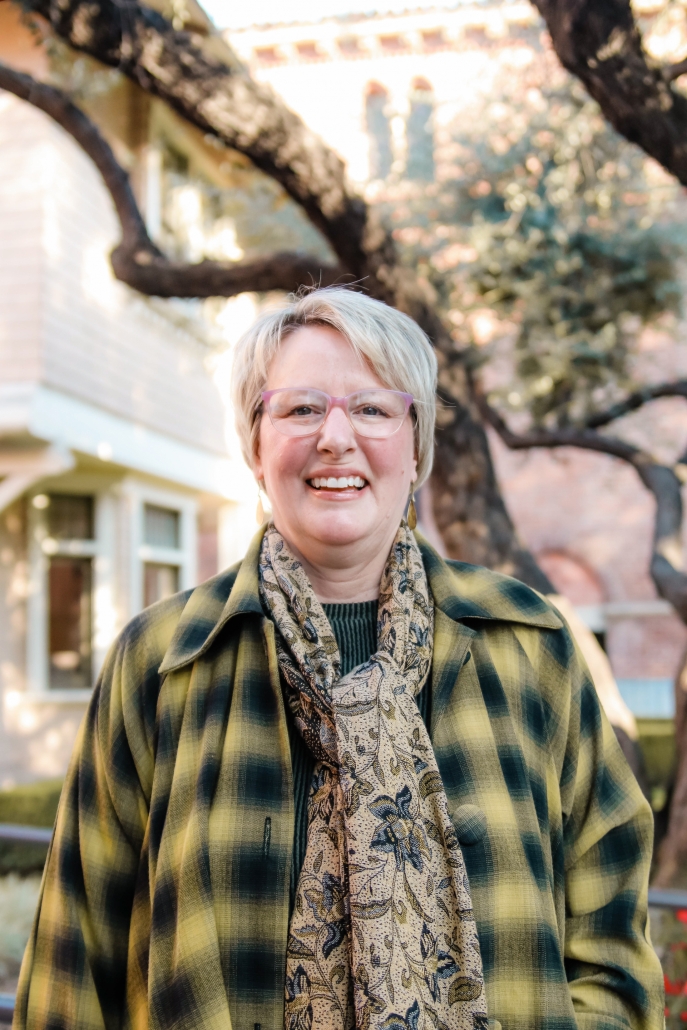Thornton professor wins research award

Lynn Helding knew she wanted to be a singer when she was 8 years old. Now, years later, Helding is a professor of voice and coordinator of vocology and voice pedagogy at the Thornton School of Music and was named the 2020 Contemporary Commercial Music Institute Lifetime Achievement Award recipient by Shenandoah University for her research in cognitive neuroscience and the teaching of voice.
Helding will receive the award in July when she gives the keynote address at the Contemporary Commercial Music Vocal Pedagogy Institute at the University.
“It was a total surprise,” Helding said. “It is an honor to be there with the other past awardees … They just started [the award] in 2017, and I feel honored to be only the fourth awardee.”
Helding, who studies the intersection between cognitive neuroscience and vocology, has used her research findings in cognitive psychology to protect the vocal health of singers and enhance their learning and performance. She has also applied the mechanisms from her studies to ensure the physical well-being of her students.
“The more we can understand how our body functions, the better we can sing but also the better we can teach, so when you start teaching, you really learn,” Helding said. “I would say that in performing arts, our singers are closest to dancers in terms of how we use our bodies.”
As part of her emphasis on vocal health, Helding brought in the vocal health component to the Musician’s Wellness Initiative program that Thornton professors William Kanengiser and Stephen Pierce started four years ago, right as Helding started her job at USC.
The Musician’s Wellness Initiative program is a partnership between Thornton and Keck School of Medicine in which Thornton student singers get screened at the start of each new academic year at the USC Voice Center.
“The doctors look at their voice and make sure they have at least a baseline of good vocal health,” Helding said. “If they don’t, they get flagged and [are] advised to get services.”
Thornton Dean Robert Cutietta said that Helding’s research was well-developed even before she came to USC but joined due to its medical school where she could further her research.
“Her research is all about healthy singing,” Cutietta said. “It is really easy for a singer who isn’t trained properly to ruin her voice, to overuse it or use it incorrectly.”
Helding said that as part of her research, she has read and analyzed hundreds of published academic articles on cognitive psychology and its application to classroom environments.
“I had my own laboratory because I teach studio,” Helding said. “So, I started putting together my own experience as a teacher and coach and connecting the dots between what the research is saying about how people learn.”
Lisa Sylvester, chair of the vocal arts and opera department at Thornton, said that the work done in the wellness program was critically important to the music industry and the way music was processed and performed.
“[Her research] really represents a very high level and high standard of academic work,” Sylvester said.
Helding is also the author of “The Musician’s Mind: Teaching, Learning, and Performance in the Age of Brain Science” that released earlier this month. She started writing the book 10 years ago when she created a column called “Mindful Voice” in the Journal of Singing, where she introduced the mind as an important part of vocal science.
“She’s had a whole career developing this research,” Cutietta said. “It’s not as if there was just one study [where] she discovered something. This has been her whole career.”
The highlight of Helding’s research is the new focus of pedagogy that she has proposed. Cutietta said her specialization in the field complemented Thornton’s program that incorporates workshops on wellness components such as posture while practicing.
“We had a search several years back, and we needed someone … who could teach the classes and who could advise our teaching assistants,” Sylvester said. “We needed someone for whom that was a focus and she was clearly the most qualified.”
Helding said her study of pedagogy requires an understanding of how students learn.
“A paradigm shift in how we teach … should be on how well students learn,” Helding said. “You have to think about how people actually learn and how they learn best … Those are all questions that cognitive science is looking at.”
Helding said that she hopes to publish the second edition of “The Musician’s Mind.” Meanwhile, she wishes to pass on her legacy to her students, which is why she decided to work at USC after 22 years of teaching at Dickinson College.
“I wanted to have graduate students,” Helding said. “As we near the end of our careers, we want to be able to pass on our intellectual property.”

